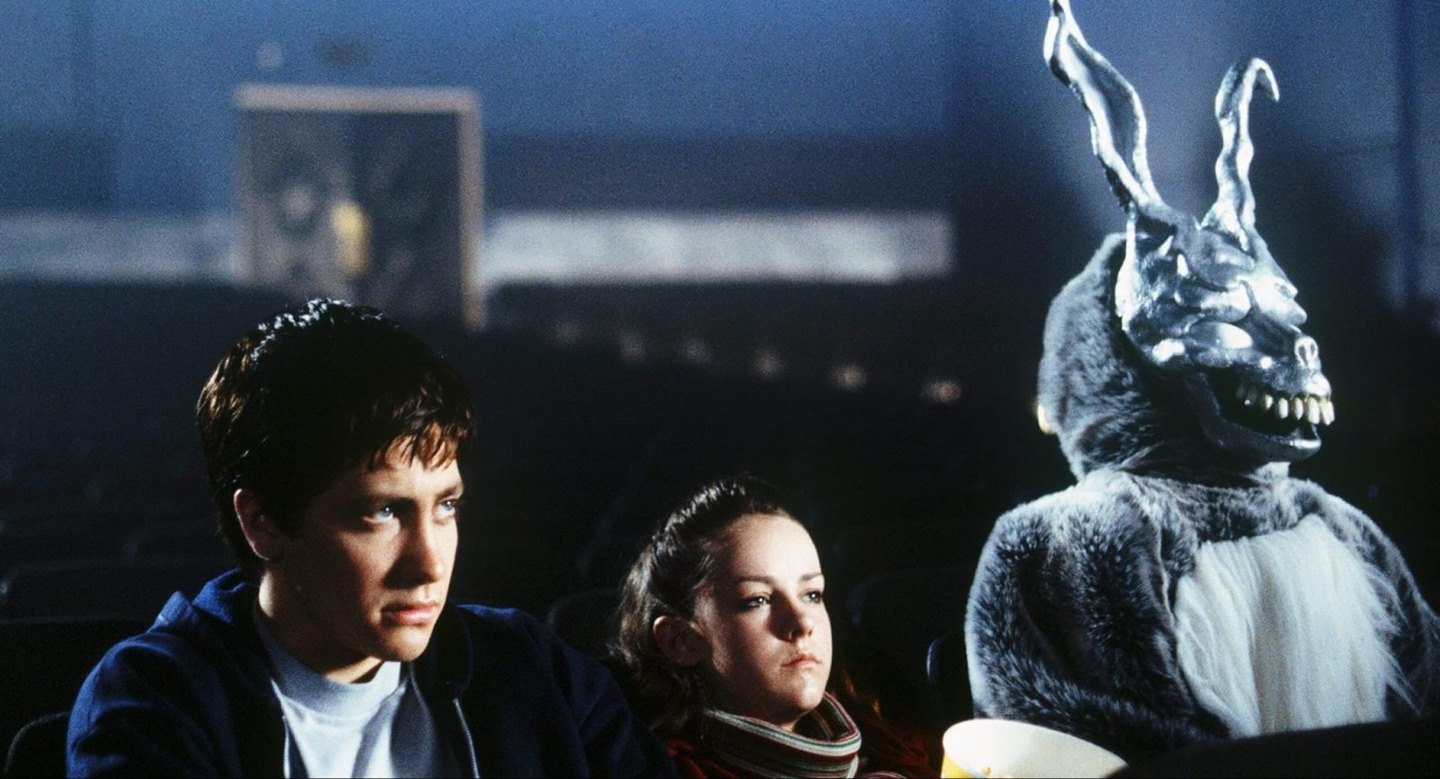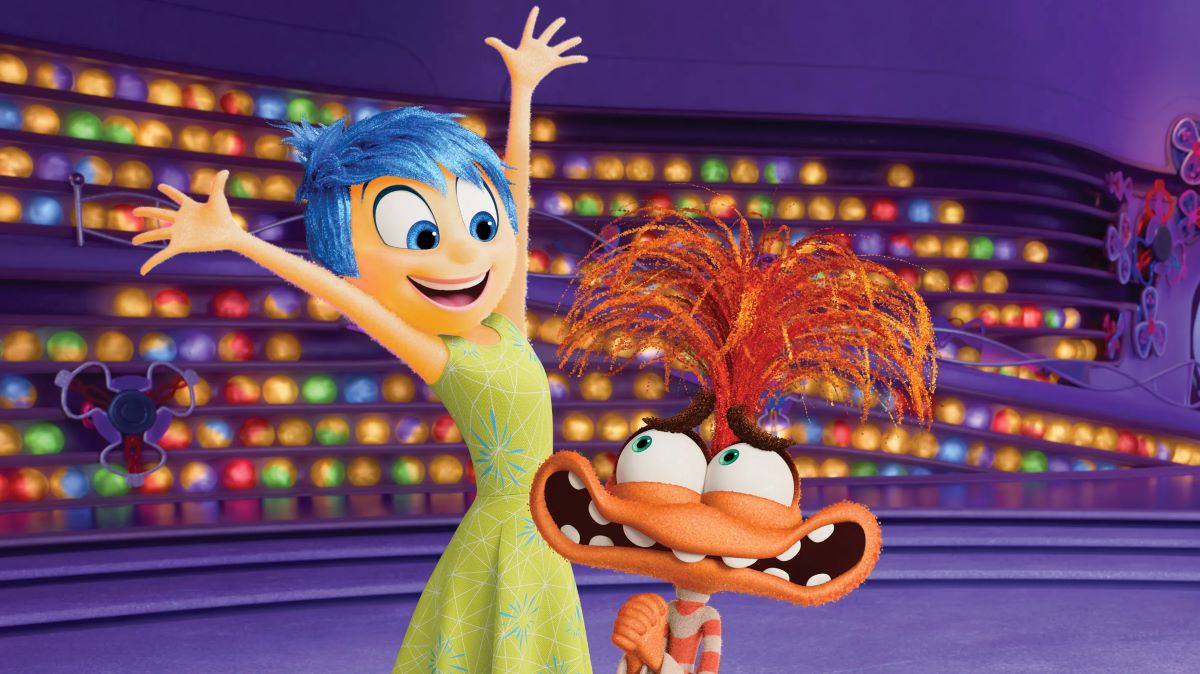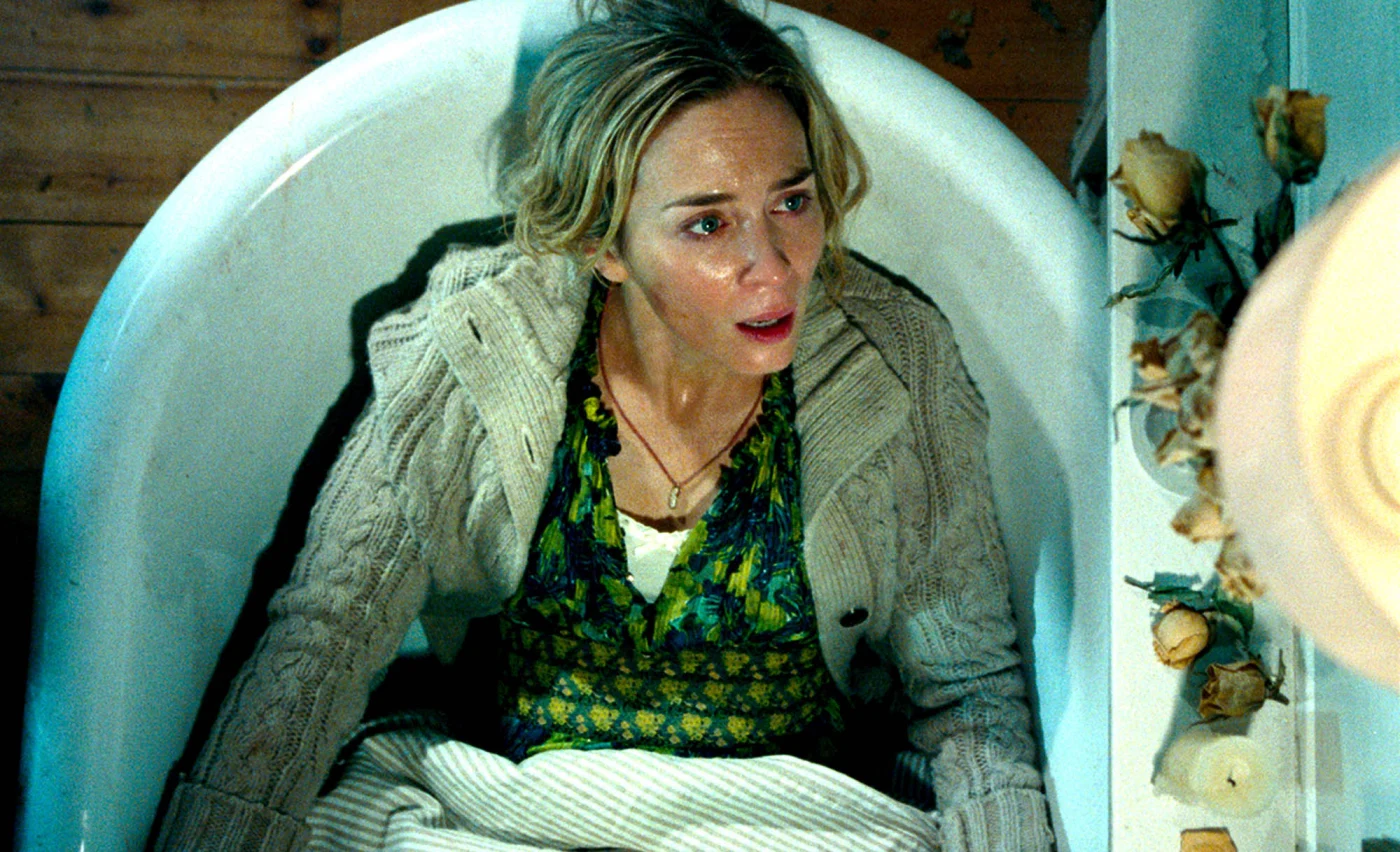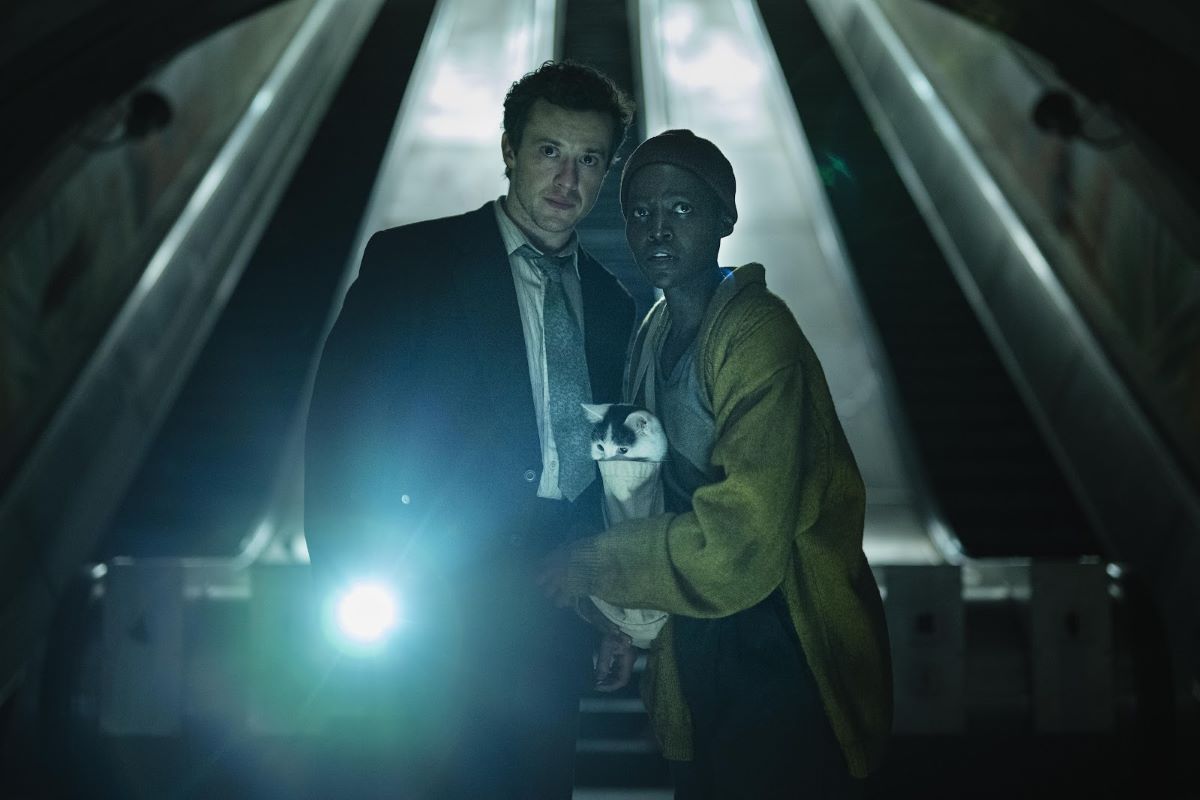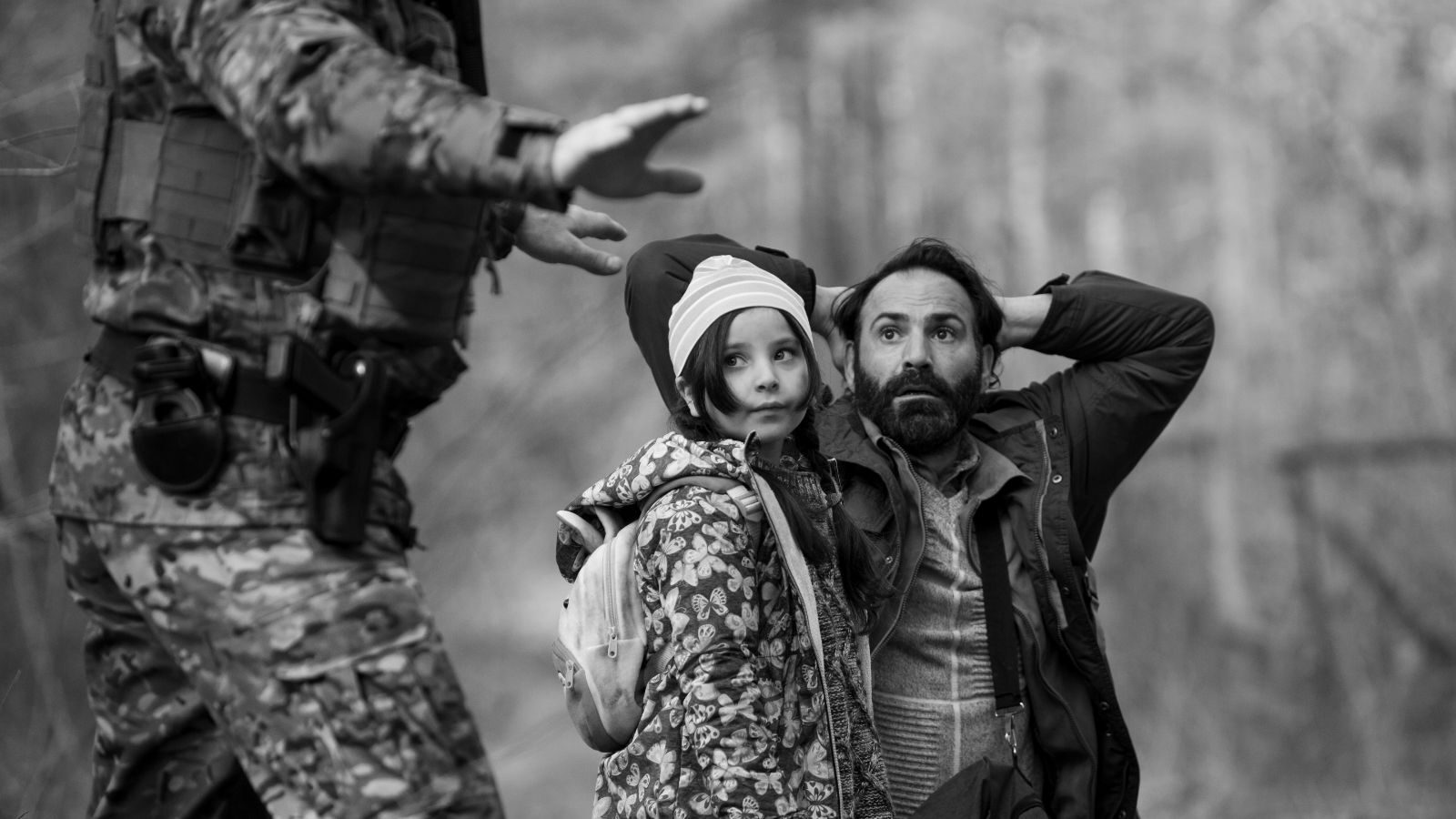Donnie Darko
by Richard Kelly
When Donnie Darko was released, Richard Kelly was not yet twenty-six. The American film industry praised him, calling it the best debut since Reservoir Dogs and hailing him as one of the most promising talents in years. Nearly twenty years later, what happened to Kelly, who has been struggling to make his fourth film since 2009? And what does it mean to revisit that cult movie, blending coming-of-age and science fiction, time loops, and dreamlike obsessions?
It’s a very very mad world
October 1988. In a few weeks, the United States will elect a new president, either George H.W. Bush or Michael Dukakis. The engine of a plane crashes directly into the bedroom of teenager Donnie Darko, who isn’t there at the time due to his sleepwalking. From then on, a giant rabbit appears to him, predicting the end of the world in 28 days. Is it a hallucination, or is there real cause for concern?
“Who was Carneade?” asks Don Abbondio in The Betrothed upon reading a eulogy of Saint Charles Borromeo. Carneade is remembered mainly as a skeptic philosopher who opposed both Stoics and metaphysicians; his writings, along with those of his disciple Clitomachus, are lost. He is mentioned in Cicero’s De re publica, and his paradoxical discourse on the impossibility of combining wisdom and justice deserves more attention. This is not the place for such discussion; he’s mentioned here because few in cinema history can match Richard Kelly in obscurity. Kelly hasn’t directed a film in eleven years; his last was The Box, a sci-fi adaptation of Richard Matheson‘s short story Button, Button. This ambitious sci-fi construction with philosophical and moral questions failed to manage its complexities. At 34, Kelly directed this third feature, likely believing he was close to Hollywood success, encouraged by his debut Donnie Darko in 2001, which crowned him the most talented debutant since Tarantino’s Reservoir Dogs. Kelly’s ambitions were clear from the start, evident in his next film Southland Tales, even securing a spot at Cannes, though it was a disaster. Presented unfinished, it backfired on the young director. With The Box barely covering production costs, Kelly faded from view. Occasionally, news of his return to set would surface, only to be refuted soon after. He has amassed a remarkable number of canceled projects. Why has the film world sidelined such a promising and visionary director? And what is it like to revisit Donnie Darko in 2020, especially the 2004 extended version presented at the Venice Film Festival?
Richard Kelly’s worst enemy was likely his own ambition. Both Southland Tales and The Box have their merits, but their narratives are overwhelming, nearly encroaching on other territories. Kelly is a storyteller, as shown in Donnie Darko‘s director’s cut—the only truly significant version. Dealing with themes of vision, space-time warps, quantum reflections, and hallucinations, Kelly aims to explain everything, even the smallest details. This demonstrates his distance from imitators of David Lynch, who misunderstand Lynch’s cinema, but it also forces his film into relentless dialogue. For instance, the complex approach to time travel in Donnie Darko shows its dual nature: embracing visionary challenges while attempting rationalization. This balance, though difficult, is compelling, constantly teetering between dreamlike delirium and making sense of what’s on screen—the director’s cut includes previously omitted dialogue sequences. Kelly’s debut resembles a film embodiment of “sci-fi.” In this universal chaos, telling the story of the world ending “in twenty-eight days,” one can get lost in a primordial soup of narrative and visual elements, from slow motion to tracking shots honoring Lynch, Duran Duran’s Notorious, and Echo & the Bunnymen’s The Killing Moon, alongside historical nods—the Bush-Dukakis presidential race—all while maintaining the essence of a teen movie. Donnie Darko‘s story is ultimately a tender, disenchanted, slightly depressed coming-of-age tale and a unique love story. The casting of Jake Gyllenhaal (with his sister Maggie as Donnie’s sister) and Jena Malone is brilliant.
Praised excessively upon release and perhaps cruelly reassessed over time, Donnie Darko is an imperfect, fascinating debut, brave and determined not to follow a conventional path. Despite being cinematically verbose, Kelly is a thoughtful, non-trivial director, a cinephile without being pedantically referential. His flaw might be overloading his films with subplots, yet this is forgivable in a debut. Hollywood’s reluctance to invest in a director with such a unique vision is regrettable. Kevin Smith once compared Kelly to Christopher Nolan without major studio backing. This may be true; the core issue might be precisely this. Carneade noted the difference between what’s not evident and what’s incomprehensible. If all things are incomprehensible, it doesn’t mean they aren’t evident. What isn’t true is likely. Kelly’s talent has been evident for nearly twenty years, even if his choices seem incomprehensible. At forty-five, Kelly still hopes this truth will be revealed, or risk becoming another Carneade.
Raffaele Meale
Quinlan, 25/05/2020

